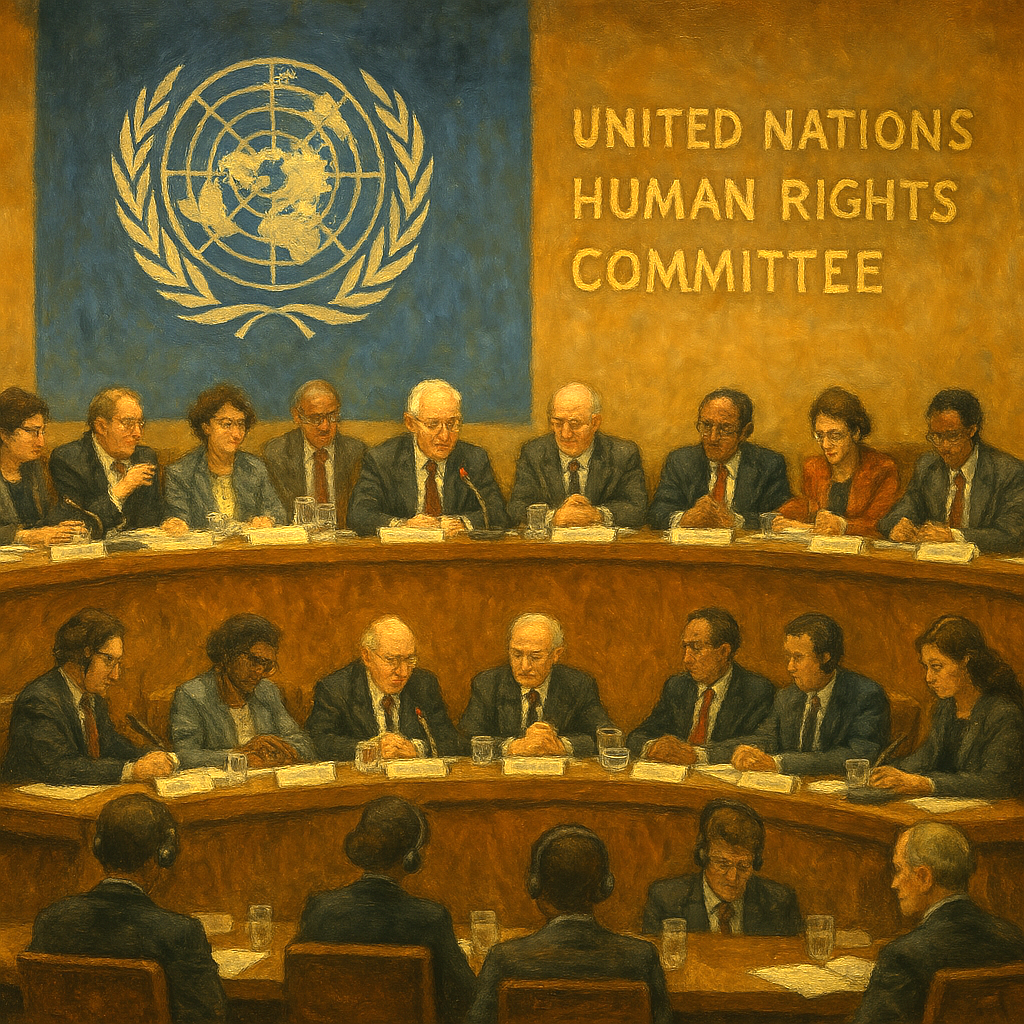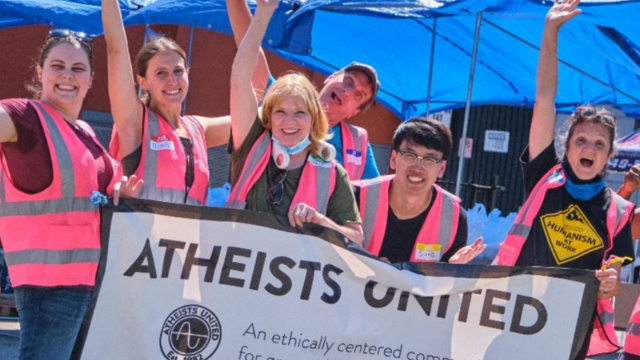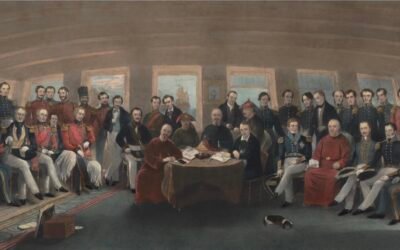The “cornerstone of interpretation” of the ICCPR provisions on FoRB is a document that Taiwanese authorities should also respect.
by Massimo Introvigne*
*A paper presented at the forum “Silence No More: Taiwan and the World in a Human Rights Relay,” Taipei, July 14, 2025.

The United Nations’ Two Covenants establish freedom of religion or belief (FoRB) as a fundamental human right. The practical interpretation and enforcement of this right have been influenced by the UN Human Rights Committee’s General Comments and case law. These authoritative texts and decisions offer crucial guidance on implementing FoRB, clarifying its scope, limitations, and interdependence with other rights.
The UN Human Rights Committee is a group of independent experts tasked with monitoring how countries uphold the International Covenant on Civil and Political Rights (ICCPR). The ICCPR itself established this committee. It is important not to confuse it with the UN Human Rights Council, an intergovernmental body composed of forty-seven UN Member States elected by the General Assembly for rotating terms. The Council is responsible for promoting and protecting human rights globally.
While the discussions at the Human Rights Council, where NGOs have repeatedly submitted statements regarding the Tai Ji Men case, hold political significance, it is important to note that the Council’s recommendations are non-binding. In contrast, the Human Rights Committee interprets binding treaty provisions and delivers decisions obligatory for the states that have ratified the First Optional Protocol to the International Covenant on Civil and Political Rights (ICCPR).
This is relevant for Taiwan, which incorporated both Covenants into its domestic laws in 2009. The next review by independent experts assessing Taiwan’s implementation of these fundamental treaties is scheduled for 2026. By pledging to uphold the Two Covenants, Taiwan has implicitly committed to adhering to the ICCPR as interpreted by the United Nations through the designated treaty body, the UN Human Rights Committee.
The Committee is responsible only for interpreting the First Covenant and does not have direct jurisdiction over the Second Covenant, the International Covenant on Economic, Social and Cultural Rights. However, since the two Covenants are interconnected, the comments and decisions made by the Committee regarding the First Covenant also impact the interpretation of the Second Covenant by both national and international courts.
One document is regarded as the “cornerstone of interpretation” for the First Covenant’s provisions on FoRB. Adopted in 1993, General Comment No. 22 serves as the Committee’s definitive interpretation of Article 18 of the ICCPR, which protects freedom of thought, conscience, and religion. Given that Taiwan is expected to respect the First Covenant as officially interpreted by the United Nations, it should also adhere to General Comment No. 22 as the foundation of that interpretation.
General Comment No. 22 outlines five key provisions.
First, it declares FoRB’s universality and durability. The Committee affirms that Article 18 is non-derogable, even during public emergencies such as epidemics or wars, underscoring its foundational status. FoRB cannot be limited in the name of any political, military, administrative, or financial interests of governments.
Second, the General Comment emphasizes the broad scope of FoRB protection. FoRB encompasses theistic, non-theistic, and atheistic beliefs and the right not to profess any religion or belief. The Committee warns against discrimination against groups unpopular or vilified by the media. It states that “Article 18 is not limited in its application to traditional religions or to religions and beliefs with institutional characteristics or practices analogous to those of traditional religions. The Committee therefore views with concern any tendency to discriminate against any religion or belief for any reason, including the fact that they are newly established, or represent religious minorities that may be the subject of hostility.” This section of General Comment No. 22 is frequently cited in cases where states have been criticized for discriminating against groups labeled as “cults.”

Third, the General Comment explains that the right to manifest religion or belief includes worship, observance, practice, and teaching, both individually and communally, in public or private settings. It is insufficient for a government to permit private spirituality; it must also guarantee the freedom of public practice, publicity, and proselytization. This entails that spiritual organizations should be allowed to own property and collect donations.
Fourth, the Comment asserts that spiritual organizations should enjoy institutional autonomy. They must be free to choose their leaders, doctrines, and organizational structure without government interference. Governments and secular courts are prohibited from intervening in the internal affairs of religious and spiritual organizations.
Fifth, while acknowledging that FoRB is not unlimited—otherwise, someone could potentially invoke it to justify human sacrifices in some ancient religions—the Comment specifies that restrictions must be clearly defined by law and necessary to protect public safety, public order, health, or the rights of others.
The Committee’s case law regularly refers to General Comment No. 22 when addressing issues raised by spiritual organizations and individuals challenging state actions regarding freedom of religion or belief (FoRB). Several cases have examined restrictions on FoRB that are not deemed necessary for protecting essential state interests. Notable decisions, such as “Hudoyberganova v. Uzbekistan” (2004), “Singh v. France” (2013), and “Yaker v. France” (2018), conclude that prohibiting Muslim women from wearing hijabs or Sikh men from wearing turbans in public spaces like schools and courts is an unjustified restriction on FoRB that does not meet the imperative needs of public order or security.
Another set of decisions involves Jehovah’s Witnesses refusing to participate in military service. While the Committee recognizes the states’ interest in having citizens defend their country, it considers compelling Jehovah’s Witnesses to serve in the military and imprisoning them for refusal as violations of their FoRB, justified by neither national security nor other reasons. The Committee notes that Jehovah’s Witnesses are willing to serve in alternative civilian service, provided military authorities do not organize or supervise this.

These decisions illustrate that, under the First Covenant and the Committee’s interpretation through General Comment No. 22, limitations on FoRB are considered lawful only in a few cases.
The upcoming 2026 review of Taiwan’s implementation of the First Covenant (which also impacts the Second Covenant) should closely examine whether the five criteria outlined in General Comment No. 22 have been respected. The arbitrary and unjustified limitations on FoRB imposed on Tai Ji Men should be a key focus of this review.

General Comment No. 22 and the Human Rights Committee’s decisions provide a robust interpretive framework for understanding and enforcing FoRB. They clarify that FoRB is not a negotiable privilege but a non-derogable right that touches every aspect of human dignity and democratic life.
States, including Taiwan, cannot claim to uphold the Two Covenants while violating FoRB. These documents serve not merely as legal texts but as moral compasses guiding the international community toward justice, democracy, and peace.

Massimo Introvigne (born June 14, 1955 in Rome) is an Italian sociologist of religions. He is the founder and managing director of the Center for Studies on New Religions (CESNUR), an international network of scholars who study new religious movements. Introvigne is the author of some 70 books and more than 100 articles in the field of sociology of religion. He was the main author of the Enciclopedia delle religioni in Italia (Encyclopedia of Religions in Italy). He is a member of the editorial board for the Interdisciplinary Journal of Research on Religion and of the executive board of University of California Press’ Nova Religio. From January 5 to December 31, 2011, he has served as the “Representative on combating racism, xenophobia and discrimination, with a special focus on discrimination against Christians and members of other religions” of the Organization for Security and Co-operation in Europe (OSCE). From 2012 to 2015 he served as chairperson of the Observatory of Religious Liberty, instituted by the Italian Ministry of Foreign Affairs in order to monitor problems of religious liberty on a worldwide scale.



